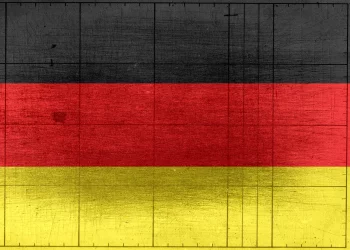
As the BBC reported, programmes such as an MBA in Thoroughbred Horseracing Industries or in Football Industries are in fact part of a growing trend - the rise of specialised MBAs.
The MBA is supposed to teach you all you need to be a future company leader, and places on MBA courses at the world's most prestigious universities are highly sought after, and therefore it is very difficult to get accepted. Anke Arnaud, Associate Professor of Management at Embry-Riddle Aeronautics University (US), says:
Specialisation gives universities and students a way to stand out. If everyone is offering an MBA programme, you have to find a way to differentiate, to innovate. It starts with attracting lecturers who have a depth of knowledge, and courses that are hip, in the now, and sexy. There's a need to offer something different to cater to specific careers.
Horseracing and football
At Liverpool University (UK) the horseracing MBA includes the study of marketing, sponsorship, the media, sports law, regulation, and horse welfare.
Students also go on a number of field trips, including seeing behind the scenes at a race day at Haydock Park, near Liverpool, and a visit to the UK's National Stud in Newmarket, in the east of England, the country's centre of racehorse breeding.
The idea for the course came from industry bodies the British Horseracing Authority and the Horseracing Betting Levy Board. The programme is designed to assist people already working in the industry to prepare and upskill for senior management positions, and help career changers to facilitate a move into the industry.
Those enrolled on the football MBA at Liverpool get to visit the headquarters of European football governing body UEFA, which is based in the Swiss town of Nyon.
Liverpool's football MBA is in fact one of the oldest specialised versions of the qualification, and is now in its 20th year. It takes one year to complete, and costs GBP 15,000 for UK nationals, or GBP 21,500 for overseas students. The horseracing qualification costs from GBP 7,500 per annum for two years.
The missing link
Marie-Pierre Serret says she knows all about the value of a specialised MBA because without one she had struggled to secure a fulfilling job in the aviation industry.
Despite having a Master’s degree in international business and marketing, the 43-year-old Frenchwoman says she spent a number of years being bumped from job to job, including working as a flight attendant and a check-in clerk.
So a few years ago she sold her house and enrolled on an MBA in Aviation Management at the Embry-Riddle Aeronautics University. It wasn't cheap, costing GBP 33,000 for the course, which takes between 18 months and two years. She describes the programme as the missing link.
Despite the rising popularity of specialist MBAs, they do have their critics, who argue that as so much time is dedicated to focusing on the specific industry, not enough hours are dedicated to teaching business fundamentals. John Paul Engel, lecturer of entrepreneurship at the University of Iowa (US), says
With only so much classroom time, taking a focused MBA would lead one to miss valuable lessons.
Meanwhile, Michal Strahilevitz, marketing professor at Duke University (US), cautions that she has seen scores of individuals who have pursued specialisation only to then discover that the specific profession wasn't quite for them.
Others warn that holders of specialised MBAs may struggle to secure the really senior jobs because the qualifications don't yet have the kudos of a general MBA.
Marlena Corcoran, chief executive of Athena Mentor, an international university admission counselling company, says that a person with a specialised MBA is likely to wind up working for a person with a general MBA.
Source: BBC


Comments